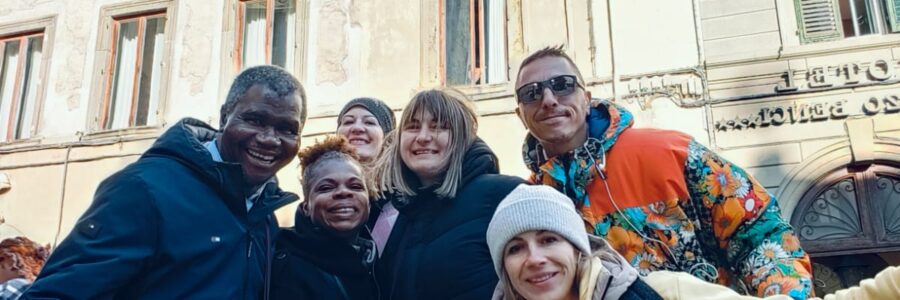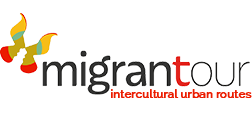
From October to December 2024, the training course for intercultural companions took place in Florence, involving 9 participants from Brazil, Palestine, Dominican Republic, Iran, Ukraine, Argentina, Ethiopia.
Online and in-presence meetings to deepen and discuss topics such as Responsible Tourism, Migrations of Yesterday and Today, Intercultural Dialogue, Intercultural Reading of Heritage, Decolonisation and Participatory Construction of Itineraries. The participants, supported by senior intercultural companions, explored the territory, dialogued with those who live and work in the neighbourhoods and contributed to enriching Migrantour Florence’s itineraries with their own experiences. New narratives and perspectives will accompany you to discover the intercultural itineraries ‘San Lorenzo: market, food and cultures’ and ‘Palazzuolo: on the trail of travellers from yesterday and today’.
The itinerary in the San Lorenzo area offers a multicultural look through food, from local Florentine traditions to those of new citizens of migrant origin. The walk begins with an introduction to San Lorenzo, a 3rd century Spanish martyr and the patron saint of chefs, pastry chefs and roasters. Participants are then welcomed within the neighbourhood alleys to finally reach San Lorenzo market. This is one of the largest covered markets in Europe, full of local products alongside foods from different parts of the world. This journey will take you from Florence to Eastern Europe, passing through Asia and Africa, up to Latin America.
The itinerary in Palazzuolo, on the other hand, starts at Piazza Santa Maria Novella, near the train station, on the trail of the late 19th-century Grand Tour travellers. Their stories intertwine today with the experiences of migrants along via Palazzuolo. This street is characterised by traditional Florentine trattorias and artisan workshops alternating with halal butchers, Afro hairdressers, and other shops run by migrants. This area is also home to organisations that host migrants just arrived in the city.
The training course was co-funded by the NGO Planeterra, which supports organisations and local communities worldwide in the development of responsible tourism as a tool to improve people’s lives, protect natural environments and enhance cultures.
